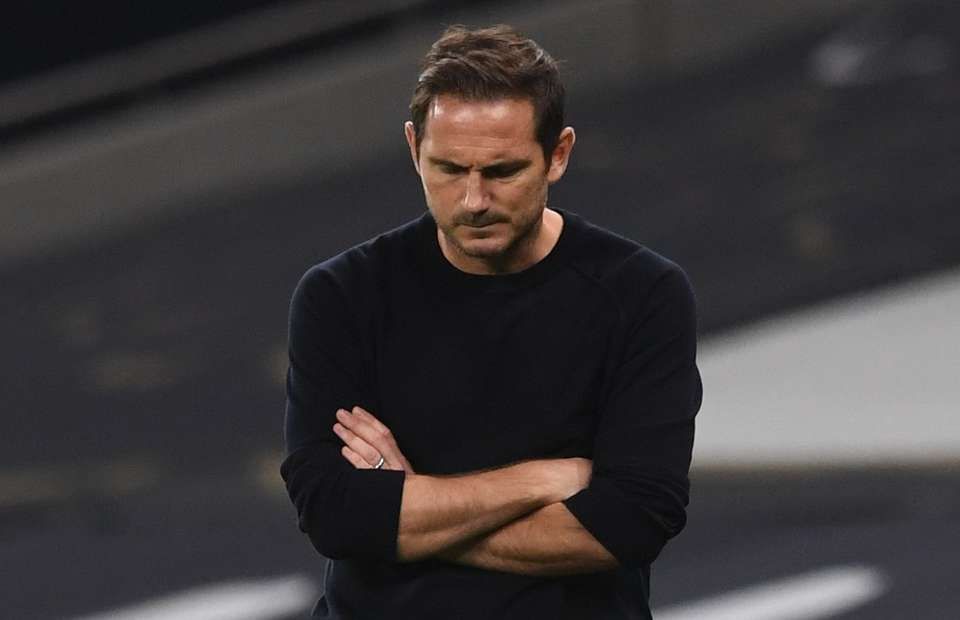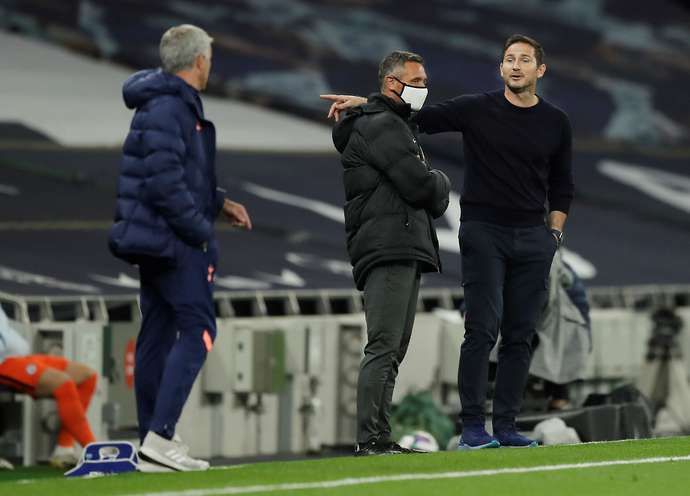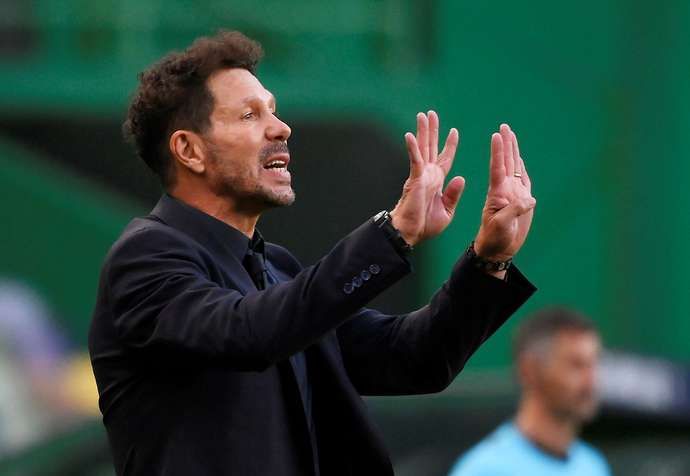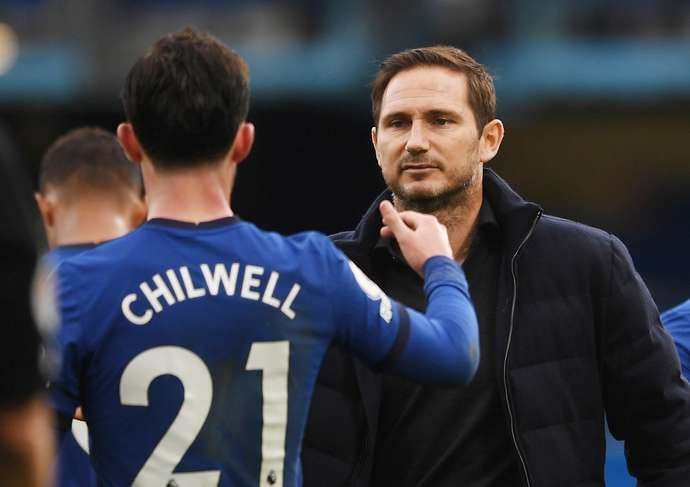Chelsea’s mission in the transfer market this summer was a simple one, if not so simple to actually execute. After serving a transfer ban during the previous offseason, and despite it being lifted upon appeal electing against any mid-season recruitment in January, the Blues took advantage of their cash reserves as domestic and European rivals felt the pinch of a global pandemic to try and build a squad of truly dynastic attacking quality.
A staggering £222m outlay saw some of Europe’s most eye-catching attackers of ideal age brought to the club, with £156m alone spent on winger Hakim Ziyech, No.10 Kai Havertz and roaming forward Timo Werner. Coupled with ever-improving prodigy Christian Pulisic, Chelsea clearly prioritised building an attack of enough grandeur to rival the scintillating offensive play of their two biggest obstacles to the English crown - Liverpool and Manchester City.
Indeed, Jurgen Klopp and Pep Guardiola’s title-winning teams have set the tactical agenda in the Premier League and this period in the competition is perhaps unrivalled for its devotion to technically demanding, electric-paced attacking football. That mantra has filtered throughout English football over the last few seasons, to the extent that even clubs promoted from the Championship - Norwich and Leeds particularly - have prioritised offensive verve over defensive solidity.
And yet, there is a danger in simply following the trend. The Premier League’s lust for making nets ripple, albeit no doubt influenced by the impact of empty stadia too, has created a top flight that’s currently averaging 3.58 goals per match - a considerable rise on last season’s 2.72 - with eight teams averaging over two goals a game. For reference, only two teams, champions Liverpool and Man City, surpassed the 76-goal mark once all their 38 matches were played out in 2019/20.
Accordingly, the Premier League has reached a point where the vast majority of teams will expect to score regardless of their opponents, whereas very few can keep clean sheets. In fact, only four sides have kept more than one so far this season after five gameweeks, with another four not keeping any at all.
Which is exactly why Frank Lampard and Chelsea’s transfer gurus were looking the wrong way in the transfer market this summer. Instead of trying to keep up with the alpha dogs, they could have used that sizeable investment to carve themselves something of a niche. The top end of the Premier League is crying out for a Jose-Mourinho-style side (Mourinho at his peak, that is) that not only scores goals to great efficiency but also keeps them out with more superior consistency than the rest of their divisional rivals.
Perhaps the incredible mere 15 goals Chelsea conceded back in 2004/05 wouldn’t be possible today, because there have been changes to the offside rule and the developed attributes of modern defenders are instrumentally different, but considering 33 goals conceded was the very best any team (champions Liverpool) could do last season, clearly there is a gap for a more balanced team who can marry razor-sharp attackers with defensive resilience.
As much as we hail Klopp and Guardiola’s influence, football tends to work in tactical cycles and eventually there will be a reaction to how uniform the Premier League has become. Whether that’s a complete reversal of current trends or simply an instance of a throwback side coming to the fore remains to be seen, but recent football history is not without its examples.
Chelsea’s last two title wins were built around well-organised defences, first Mourinho’s and then Antonio Conte’s, while in between Leicester City 4-4-2ed their way to the crown and on the European stage, Atletico Madrid’s idiosyncratic containment made them one of the most competitive teams in the Champions League for an extended period.
Of course, those teams seem more unfashionable now than ever, and Lampard as a manager appears to have bought into that. His philosophy both at Derby County and the club he’s most synonymous with has ironically for the most part emphasised youthful energy and attacking risks over the structural, machine-like qualities Chelsea were famous for during his playing days.
Nonetheless, there is surely an equilibrium in between to be found; by no means the Premier League’s answer to Atletico, but also not trying to keep up in a seemingly futile shootout with two teams that have scored in excess of 84 goals each for the last three seasons. Chelsea had the financial firepower to strike such a balance this summer, but such logic seemed to be lost under the pungency of the flavour of the month lingering on Lampard’s tongue.
Yes, Chelsea did bring in defensive upgrades as well this summer, not least including spending over £45m on Ben Chilwell. But the England international is as much an attacking player who lines up in defence as he is someone who’ll contribute significantly to a team’s resilience. Thiago Silva, for all his wisdom, will have an almighty job on his hands if he’s to transform the Blues’ backline single-handed, and although goalkeeper Edouard Mendy is definitely a step in the right direction, in all honesty any goalkeeper more reliable than Kepa and younger than Willy Caballero would meet such criteria.
All in all, just 30% of Chelsea’s summer spending went on defensive personnel, whereas the remaining 70% was devoted to players who could enhance them going forward. If we question Chilwell’s legitimacy as truly being a “defensive” addition, that percentage whittles down to the equivalent of Mendy’s transfer fee alone - less than 10% of the total outlay.
Which is made all the more puzzling by the fact that - even if we put aside the idea of Chelsea missing an opportunity to make themselves a niche in a Premier League so besotted with scoring goals that defensive responsibility has notably declined - conceding too easily was the fundamental issue holding Chelsea back last season.
In fact, they outscored third-placed Manchester United by three goals yet finished behind them due to their goal difference being 15 strikes inferior, ranking a lowly joint-ninth-bottom throughout the division for goals conceded - level with a Brighton team that only finished seven points clear of relegation. This term we’ve seen that trend continue - the Blues have conceded almost two goals a game so far, including letting three goals twice against mediocre teams in Southampton and West Brom, and managed only a single clean sheet at home to Crystal Palace.
Lampard will argue that with Willian and Pedro both moving on and Olivier Giroud not getting any younger, Chelsea needed a refresh in attack this summer. And for it to meet the standards of their divisional rivals throughout the next few years, the signings of Havertz and Werner were particularly essential, providing a young, offensive base for the rest of the team to eventually be moulded around.
But there is an old adage in football that defences win titles and even City and Liverpool have provided their own examples of that over the last few years. It wasn’t until Guardiola brought in Ederson, Kyle Walker, Benjamin Mendy and Danilo in the same summer window that City emerged as easily the most dominant side in England, just as it wasn’t until Liverpool spent big on Virgil van Dijk and Allison that the Reds became a force capable of overcoming them.
Never has that mantra been truer than right now in the Premier League, when a capacity to keep out goals is a far superior differential to how many you’re capable of scoring, and with so much money in the bank, Lampard could have made the signings this summer to rebuild Chelsea on a foundation of relative imperviousness, harking back to the club’s traditional identity of the Roman Abramovich era.
Maybe that identity isn’t so in vogue anymore, but in a division where everybody is echoing the same devotion to goalscoring, creating a team more assured at the opposite end of the pitch would have at least made Chelsea a different proposition to the rest of the Big Six, and potentially given them a unique advantage in the title race.
























